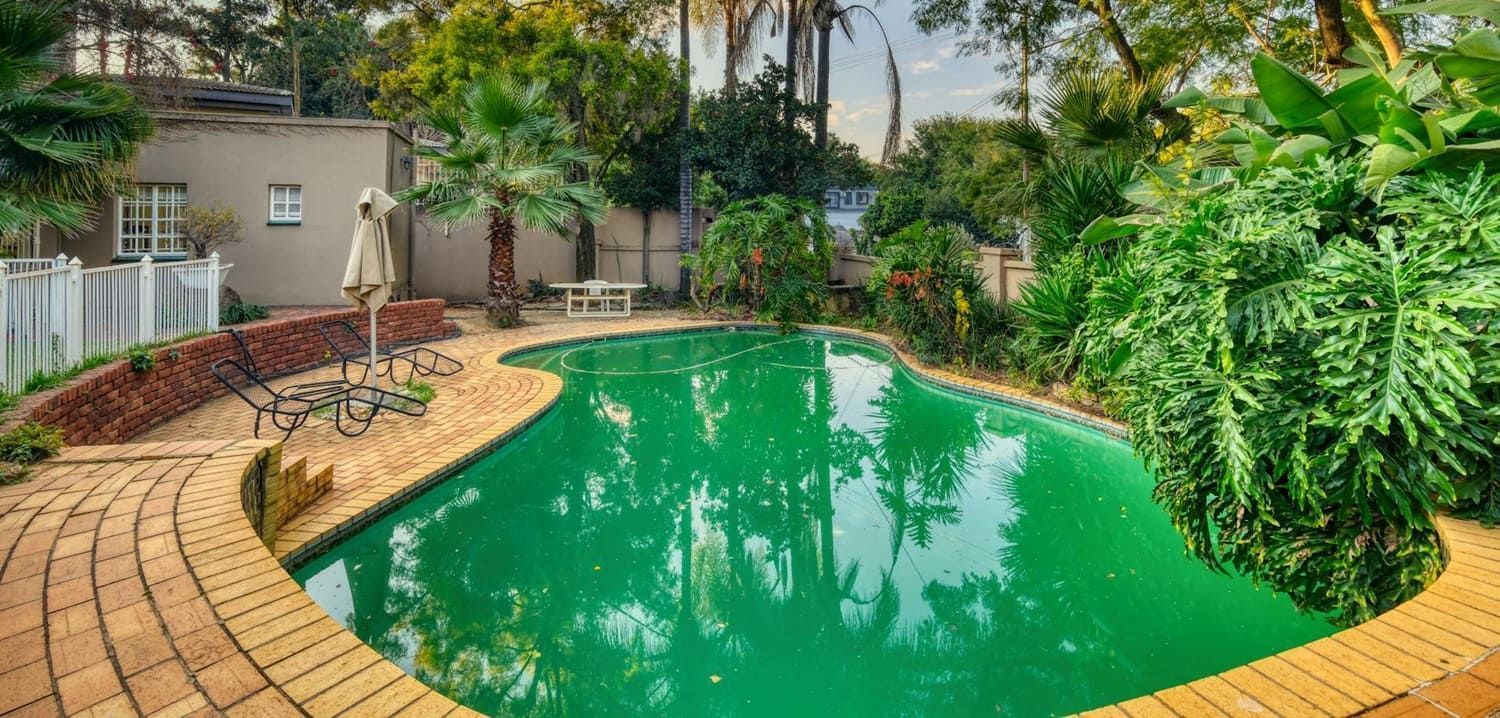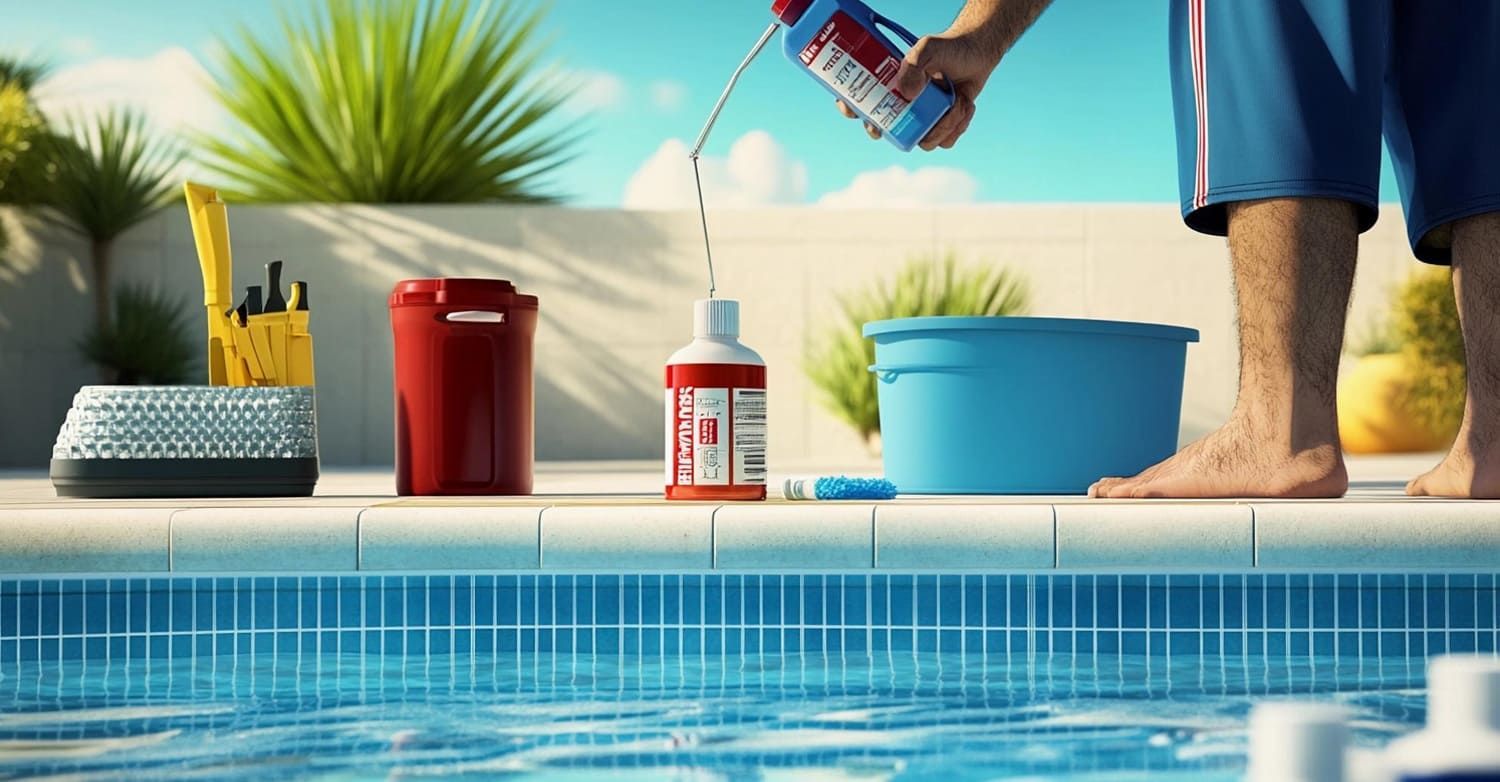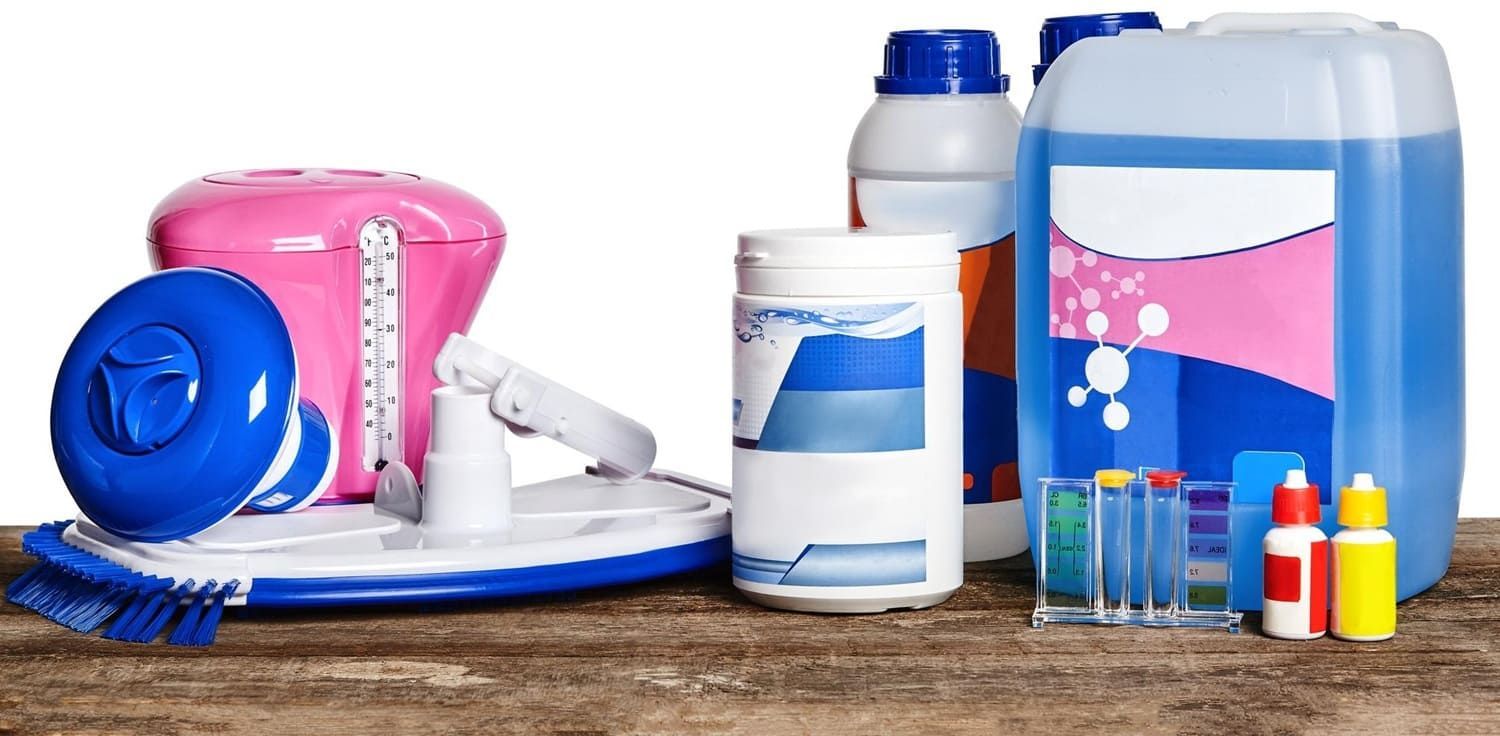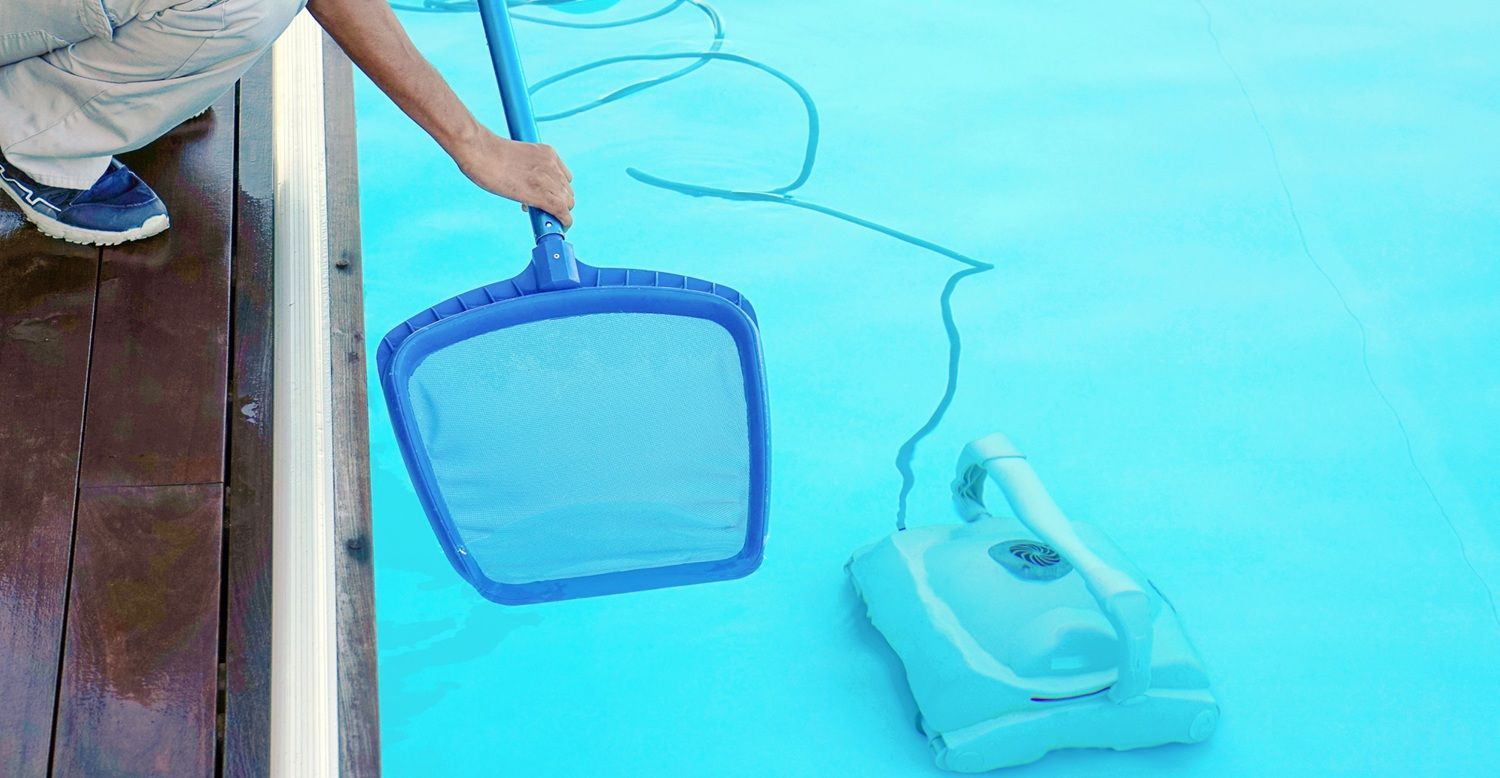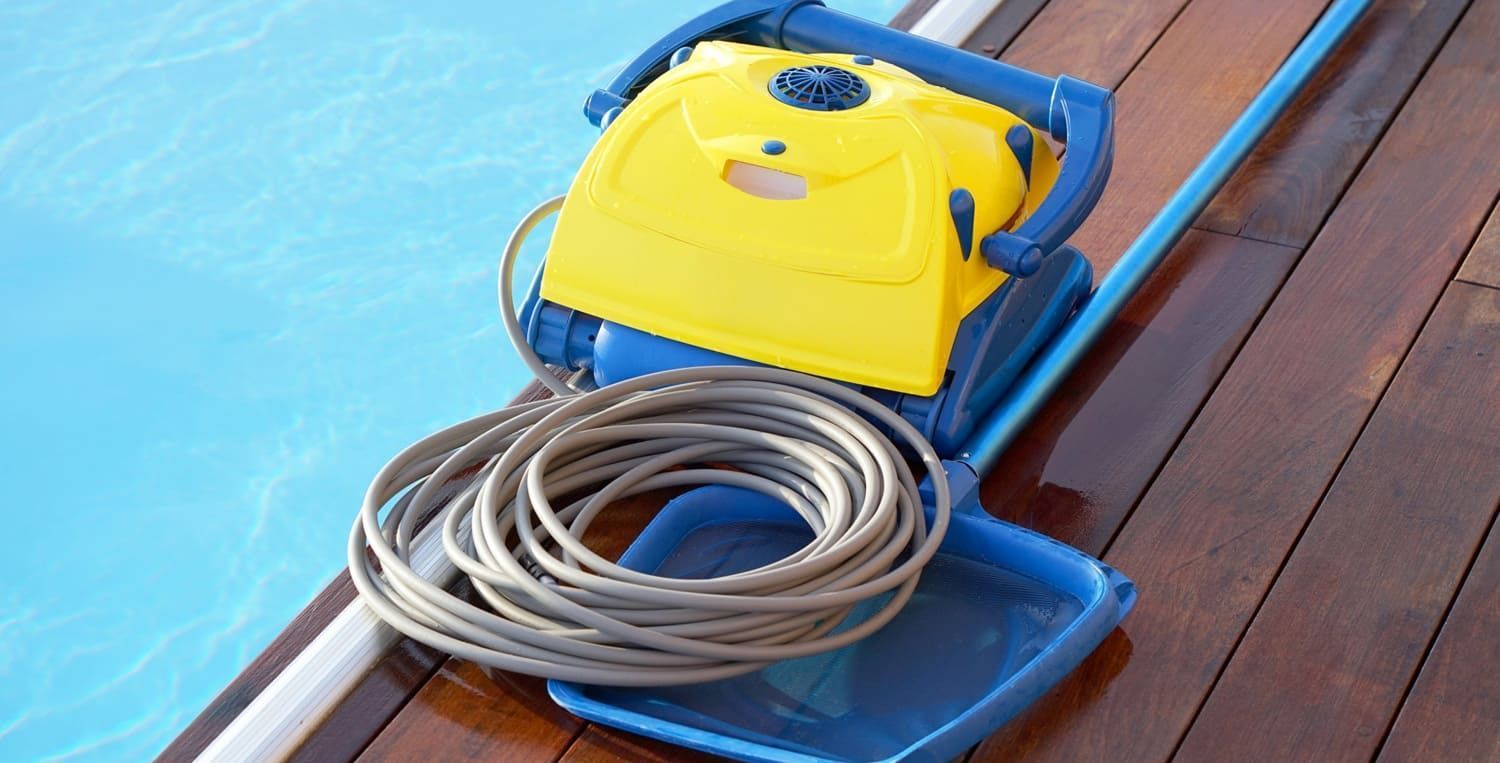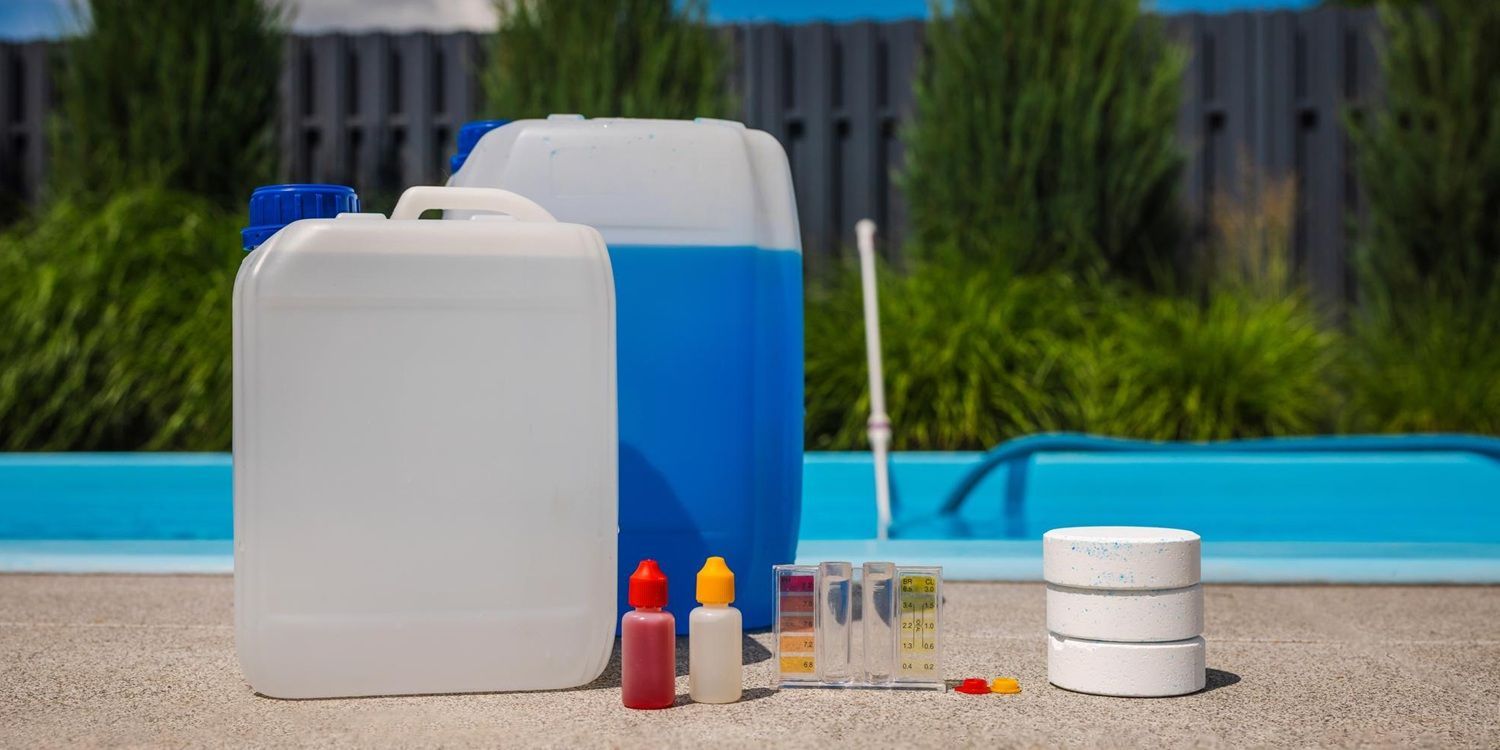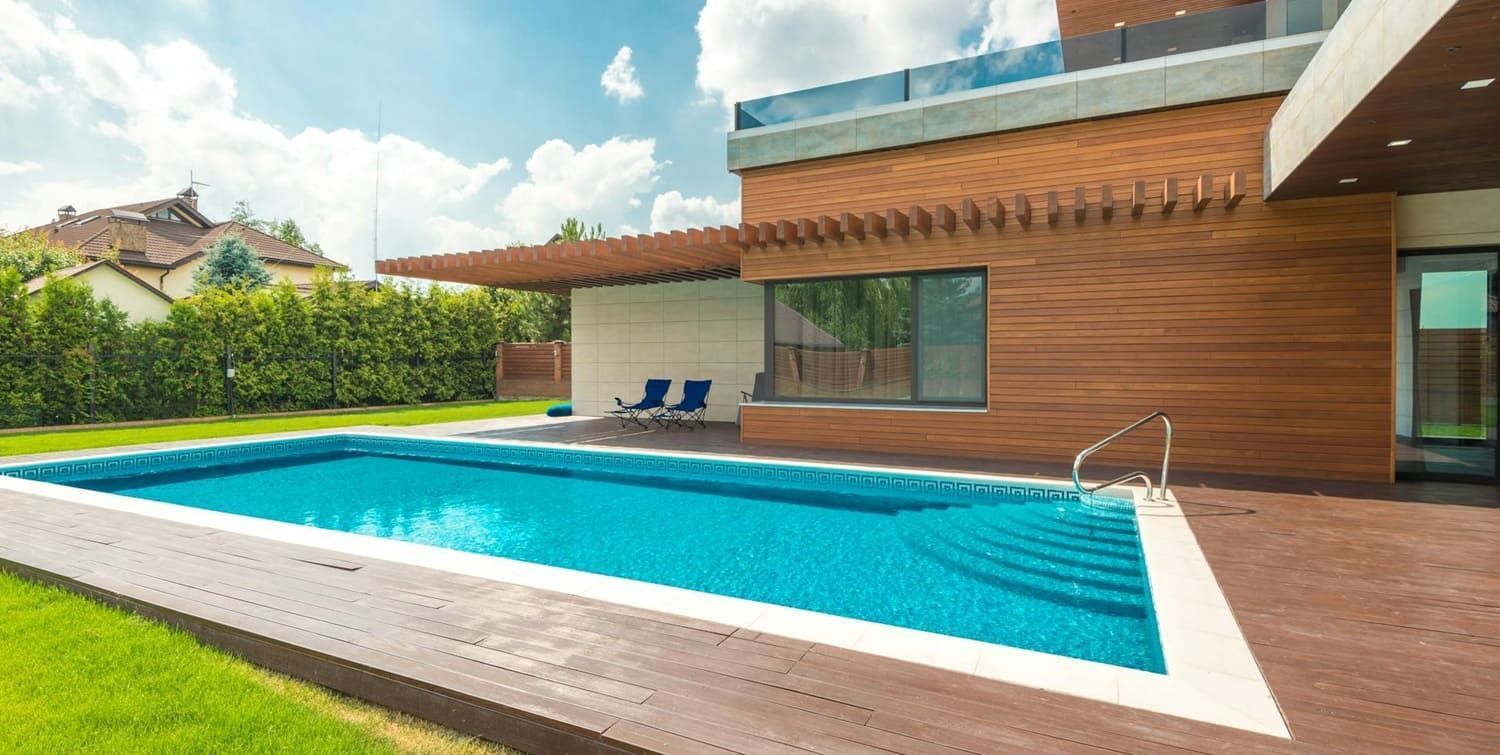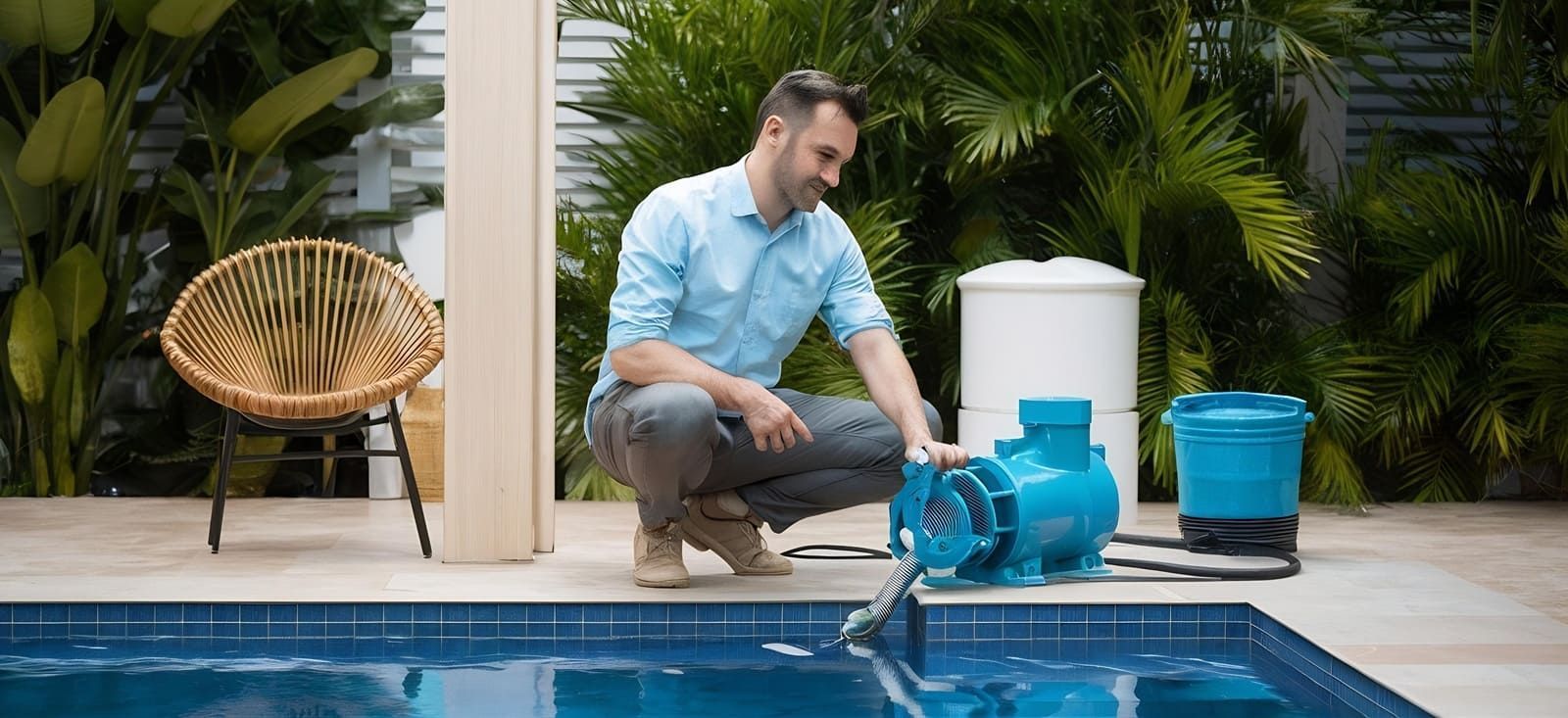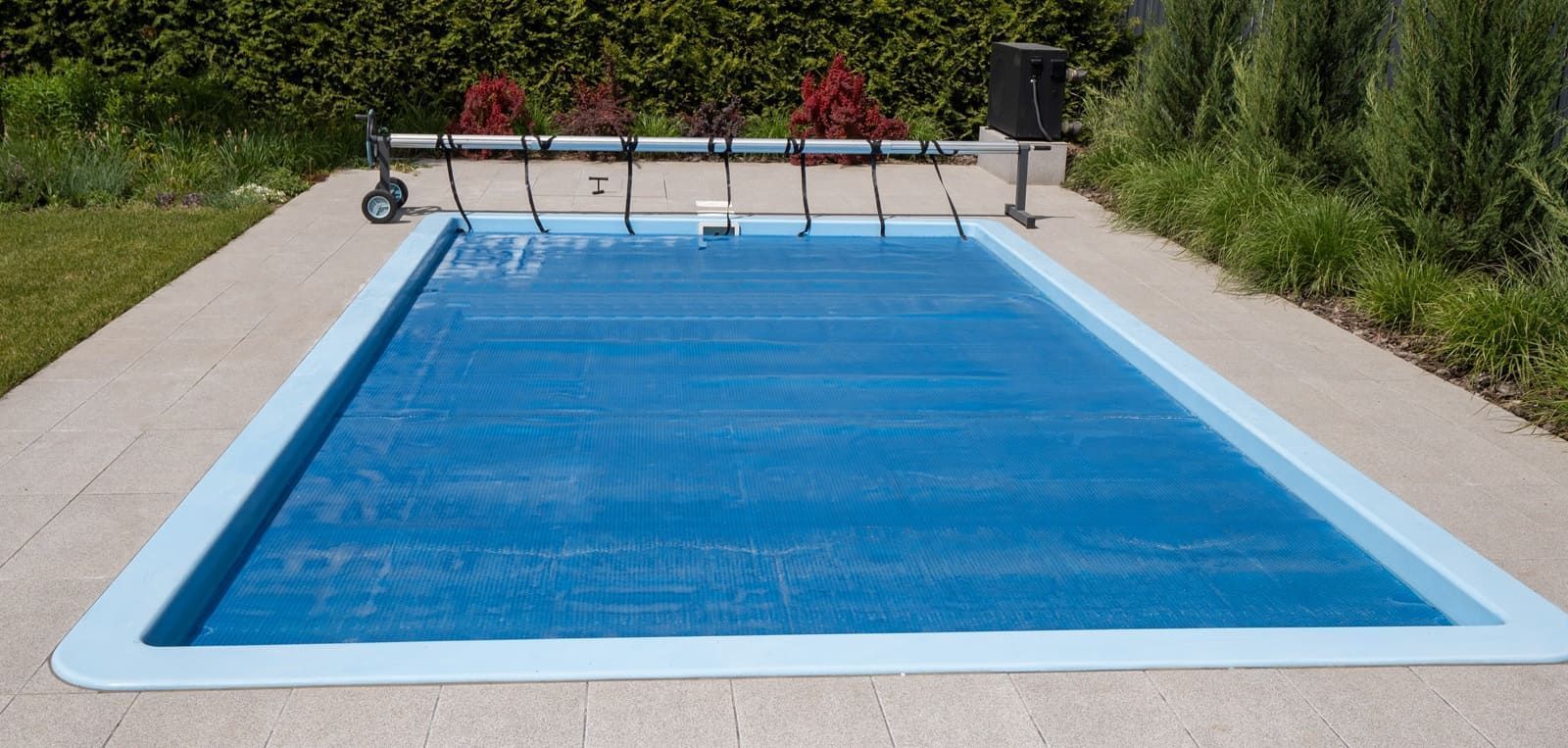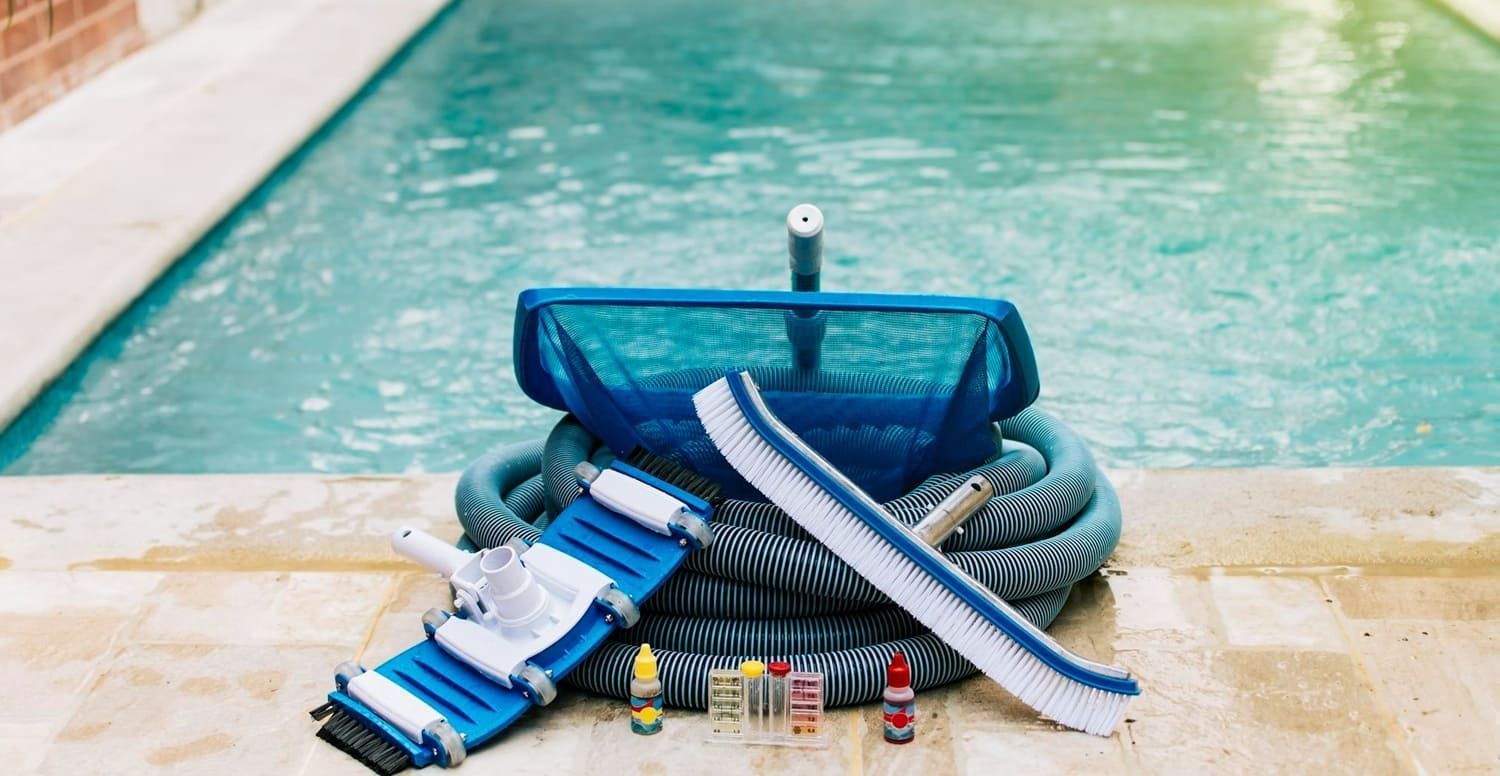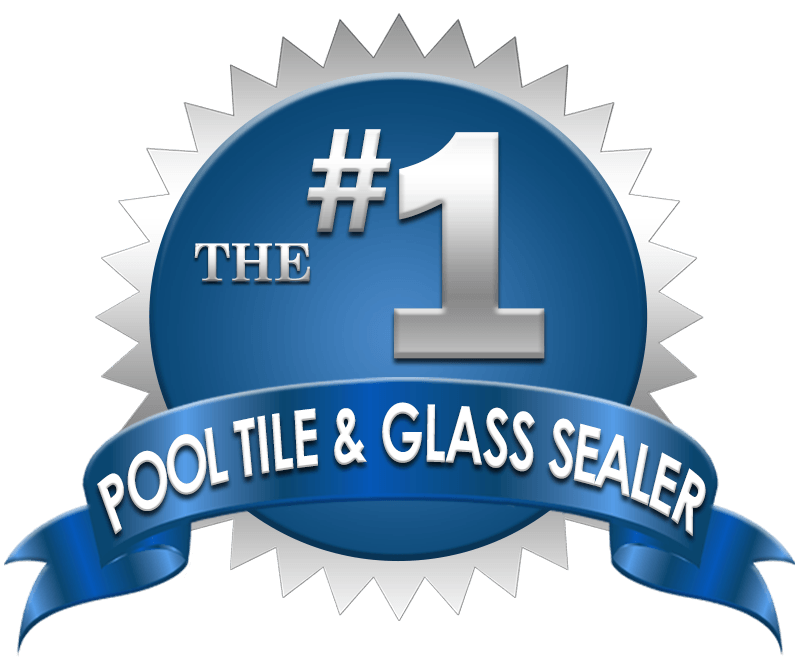7 Common Mistakes to Avoid When Using Pool Tile Cleaners
Using cleaning products for your swimming pool tiles properly requires knowing what not to do. Here are common mistakes to avoid when using pool tile cleaners.
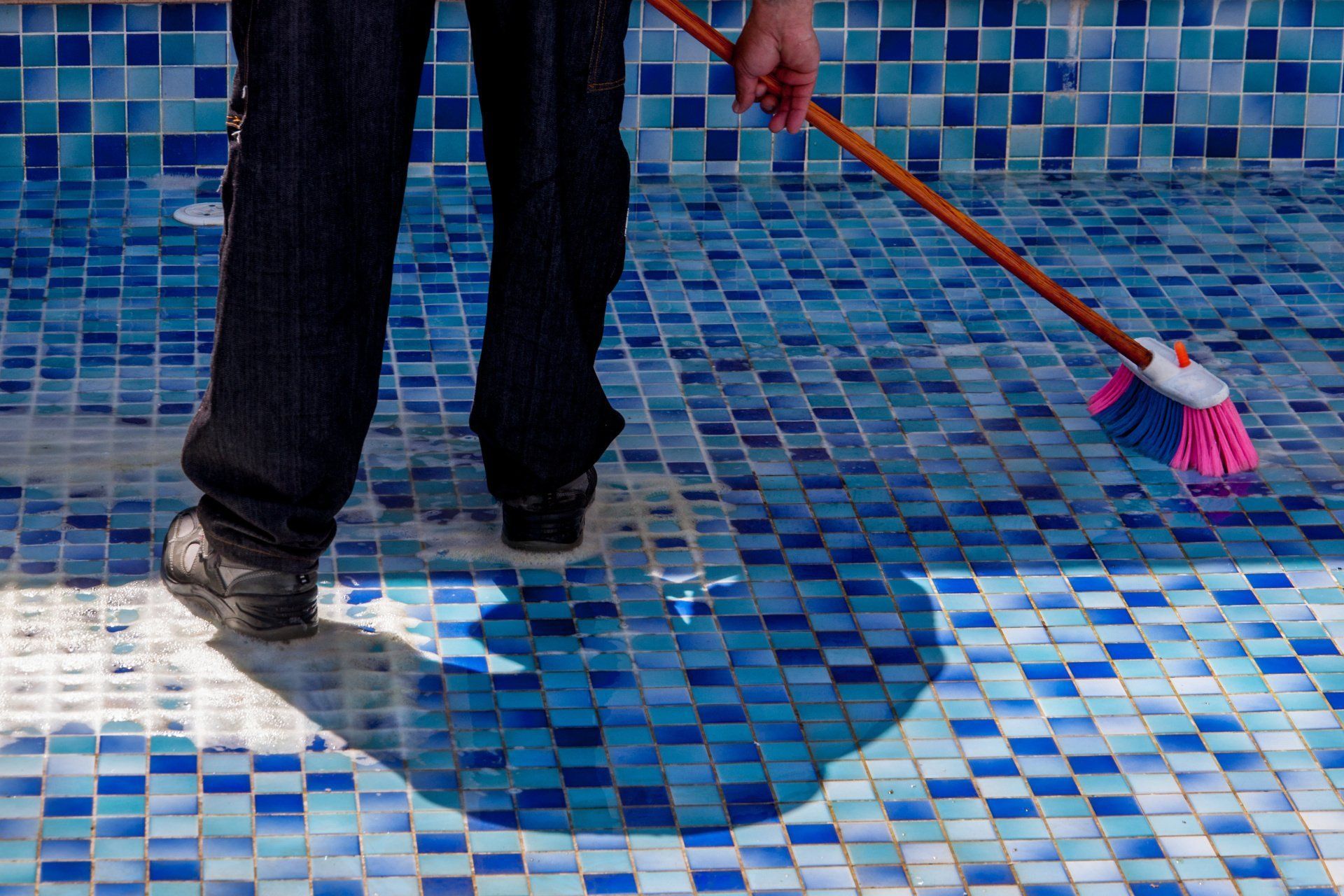
Your pool is your oasis on a hot summer's day, but when it's dirty, it can be anything but relaxing. Pool tiles are prone to calcium build-up, scum, algae, and dirt from exposure to the elements.
If you want to hold onto your oasis, learning how to keep your pool tiles sparkling clean is key. In this article, we'll take a closer look at how your pool gets so dirty and what to avoid when using pool tile cleaners.
What Causes Dirty Pool Tiles?
Several things can make the tiles in your pool dirty. If you want to maintain them, understanding what will dirty your tiles will help you clean them properly.
Calcium Carbonate
Calcium Carbonate is a white, flaky deposit that appears on your tile and is often caused by a PH imbalance in your pool. Calcium carbonate is one of the most simple substances to clean from your tile and is no cause for great concern.
To determine if your tile has calcium carbonate, you can perform an acid test. Acid tests involve applying muriatic acid to the area. If it fizzes, you can confirm that calcium carbonate is the cause.
Algae
Inconsistent chlorine levels, poor filtration, and a lack of circulation lead to algae growth in your pool. Algae growth will make your pool tiles dirty and attract bacteria.
To prevent algae, perform an algaecide weekly to fight the start of any growth.
Improper PH Balance
If the PH balance is off, you will see an increase in algae and calcium build-up, as well as cloudy water in your pool. In more severe instances, improper PH balances lead to corrosion or cracking.
Calcium Silicate
Unlike calcium carbonate, calcium silicate is more challenging to get rid of from your pool tiles. Calcium silicate looks like something greyish-white along your waterline and occurs when the PH balance is off.
1. You're Using the Wrong Cleaners
When cleaning tiles, you must use the right cleaners for the job. Depending on the condition of your tile, you may be able to use solutions made of common household items, such as vinegar, baking soda, or toothpaste. Difficult jobs will call for specialized pool cleaning solutions.
Determine what's causing the grime and buy a solution designed to remove it. Household cleaners will do the trick for light build-ups, but heavy calcium deposits or algae will need more abrasive pool tile cleaning products.
2. You Aren't Using Them With the Right Materials
Even if you have an effective tile cleaner for the job, you'll struggle to get a proper clean if you aren't using the right materials with it.
Soft Bristle Brush
Using a brush to clean your tiles regularly is one of the most effective ways to maintain them. Focus on areas with less circulation and are most prone to build up. These areas often allow more grime to accumulate, making things more time-consuming to clean.
Pressure Washer
A pressure washer is another excellent preventative method that washes any loose debris away from your tile. By keeping pool tiles free from debris, you're less likely to experience growth of algae or calcium.
Pumice Stone
If you already have areas with an accumulation of calcium, using a pumice stone can help work it away from the tile. Make sure the surface is wet to prevent any scratches.
3. Using Cleaners Only Once a Year
Cleaning pool tiles should happen at least two to three times a year. When you only clean once a year or less, you are allowing time for grime to pile up on your tiles. The longer something sits, the harder it is to remove.
Skipping cleanings also puts you at risk for build-up forming in other areas of your pool. The extra build-up may result in costly damage or clogs to other components of your pool that you can avoid with regular cleaning.
4. Skipping a Pool Cleaning Schedule
Aside from regular tile maintenance, keeping up on all pool cleaning tasks will keep your pool in the best condition. Create a cleaning schedule to clean tiles, change skimmers, check PH levels, backwash, run the pump, remove debris, and shock the pool.
5. Don't Mix Cleaners
While combining two powerful cleaners may sound like a good option, mixing chemicals is dangerous. Pools already contain chlorine and hypochlorite. By adding other chemicals, it's possible to create chlorine gas.
Use safe household solutions or buy a cleaner designed for your pool's specific needs.
6. Not Using Them to Tackle Calcium Build-Up Right Away
At the first sign of calcium build-up in your pool, get out your tile cleaner and get to work. By tackling the build-up right away, you keep your pool well maintained and prevent any tough to remove calcium deposits from forming.
7. Skipping Sealants
Sealants are applied to tile and grout lines to protect the surface of your pool tile from the elements. Consider using a sealant if you want added protection from dirt, UV rays, stains, and mineral deposits.
Looking for a quality sealant? Shop LayorCare Pool & Patio Protection.
Don't Make These Mistakes When Using Pool Tile Cleaners
Don't let dirty pool tiles stress you out. Most build-up can be cleaned up in no time using pool tile cleaners and the right materials. Avoid these mistakes and you'll have the know-how to keep your pool tile in tip-top shape.
Don't let dirty pool tiles stress you out. Contact
LayorCare Pool & Patio Protection now.
Recent Posts
